Read Time: 4 Minutes Subscribe & Share
Guilty As Charged
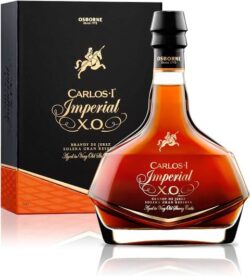 As the daughter of a master maker of the Old Fashioned cocktail and a devoted quaffer of a Spanish brandy called Don Carlos Primero, you would think I would love American whiskeys and after-dinner cognacs or calvados. But I have failed you. While I have adored, (and I don’t remember a single vintner or vineyard) the absolute dedication of the Resident Wine Maniac in his explorations of wine, the usual postprandial drinks I simply can’t do. It has been a mystery that the RWM has tried to resolve for years with little success. But one evening after dinner at the home of Dominica Marchetti and her husband Scott Vance, they brought out a startling array of bottles with wildly different labels, and I was introduced to the very particular world of Italian Amari. After tasting about half a dozen, I was entranced. And surprisingly, not even tipsy.
As the daughter of a master maker of the Old Fashioned cocktail and a devoted quaffer of a Spanish brandy called Don Carlos Primero, you would think I would love American whiskeys and after-dinner cognacs or calvados. But I have failed you. While I have adored, (and I don’t remember a single vintner or vineyard) the absolute dedication of the Resident Wine Maniac in his explorations of wine, the usual postprandial drinks I simply can’t do. It has been a mystery that the RWM has tried to resolve for years with little success. But one evening after dinner at the home of Dominica Marchetti and her husband Scott Vance, they brought out a startling array of bottles with wildly different labels, and I was introduced to the very particular world of Italian Amari. After tasting about half a dozen, I was entranced. And surprisingly, not even tipsy.
N.B. Domenica is a terrific recipe writer with roots firmly planted in Abruzzo. She currently writes a newsletter, Buona Domenica, on Substack. She has created several cookbooks, and I had to buy a second copy of one of her earliest, Big Night In as the first was spattered and torn. I may buy a third, just in case.
A Whole New World
This Christmas, after noting that I really enjoyed trying different amari, my son-in-law very presciently gave me a book on this distinctly Italian evening drink (it also has been translated into English). Oddly, I even enjoy trying (perhaps only once) an amaro that is not going to make it on my lista preferita. One example is the famous Fernet-Branca, which traces its recipe and history back to the Venetian monopoly from the Medieval Era through the Renaissance in the production of Teriac or Theriac.
This compound of herbs, roots honey and probably animal parts (best left unspecified) was once produced in Venetian public squares with brass mortars and pestles. Interestingly, Theriac was 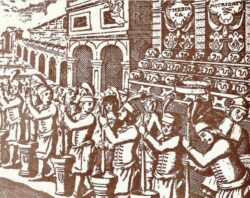 also called Venetian Treacle in Middle English, in case you are wondering how the British ever devised such a dark and bitter syrup. You can still see mortar imprints on some paving stones in Venice today, as well as some signs from historic pharmacies inscribed with the term Teriac.
also called Venetian Treacle in Middle English, in case you are wondering how the British ever devised such a dark and bitter syrup. You can still see mortar imprints on some paving stones in Venice today, as well as some signs from historic pharmacies inscribed with the term Teriac.
Apparently up until the early 20th century, the firm of Fernet-Branca traced its globally famous amaro to the Venetian production of Teriac. At some point in its marketing, Fernet Branca dropped the allegiance to this weird medieval medication. In the US at least, it became the go-to “Bartender’s Handshake” which is a free shot (sort of an on-the-house amuse bouche) to welcome a returning imbiber.
To Bottle The Sunset
I have not finished struggling to read through this book in Italian, and I have by no means 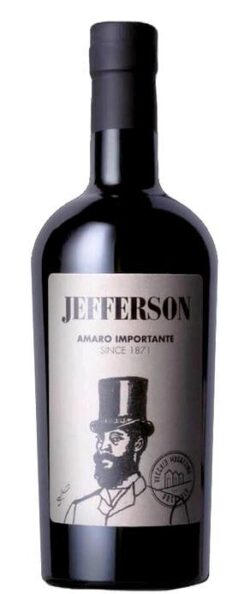 sipped even a small percentage of the amari that are available in Italy, but I happily persist. Each region has its own traditional ones, and now there are new ones being created. One of my favorites is from a distillery in Calabria with the perplexing name – Vecchio Magazzino Doganale – Old Customs Warehouse. The story behind the name of the company is woven into its award-winning amaro – Jefferson Amaro Importante.
sipped even a small percentage of the amari that are available in Italy, but I happily persist. Each region has its own traditional ones, and now there are new ones being created. One of my favorites is from a distillery in Calabria with the perplexing name – Vecchio Magazzino Doganale – Old Customs Warehouse. The story behind the name of the company is woven into its award-winning amaro – Jefferson Amaro Importante.
Its back story, and apparently that of the company, is that in 1871 a ship piloted by a Captain Jefferson along with a doctor and alchemist named Gil and Roger, the ship’s navigator, survived a shipwreck near Tropea. They sheltered in a store called the Vecchio Maggazino Doganale, where they were befriended by a Calabrian, U Giocondo, a self-described bottler of sunsets. Jefferson and his two surviving shipmates were so entranced with the area and its wild herbs and fruits that they developed  the precursor to this delicious amaro with their new friend U Giocondo. Their creation was “made with fresh herbs and precious citrus fruits from Calabria, rosemary, oregano, lemons, bitter oranges, grapefruit, bergamot and Sila Gentian.” The current version, reinvented by Ivano Trombino, a descendent of U Giocondo, is the founding amaro of this unusual distillery, which has produced several others that I can hardly wait to try. Not knowing how much of amari lore is fact and how much is fiction is part of the fun of trying these particular infusions and distillations. I’ll probably never embrace grappa or B&B, but I’m all-in for these elixirs that once were viewed as medicinal and now are sipped as an evening pleasure.
the precursor to this delicious amaro with their new friend U Giocondo. Their creation was “made with fresh herbs and precious citrus fruits from Calabria, rosemary, oregano, lemons, bitter oranges, grapefruit, bergamot and Sila Gentian.” The current version, reinvented by Ivano Trombino, a descendent of U Giocondo, is the founding amaro of this unusual distillery, which has produced several others that I can hardly wait to try. Not knowing how much of amari lore is fact and how much is fiction is part of the fun of trying these particular infusions and distillations. I’ll probably never embrace grappa or B&B, but I’m all-in for these elixirs that once were viewed as medicinal and now are sipped as an evening pleasure.
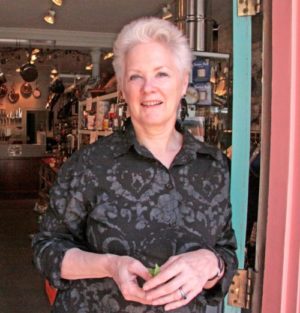
Kitchen Detail shares under the radar recipes, explores the art of cooking, the stories behind food, and the tools that bring it all together, while uncovering the social, political, and environmental truths that shape our culinary world.
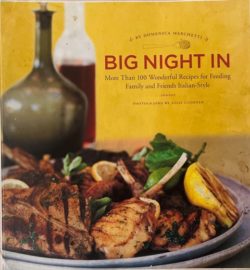
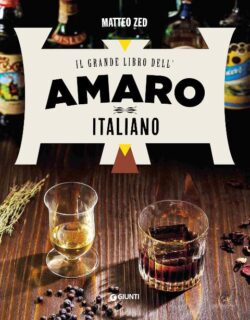
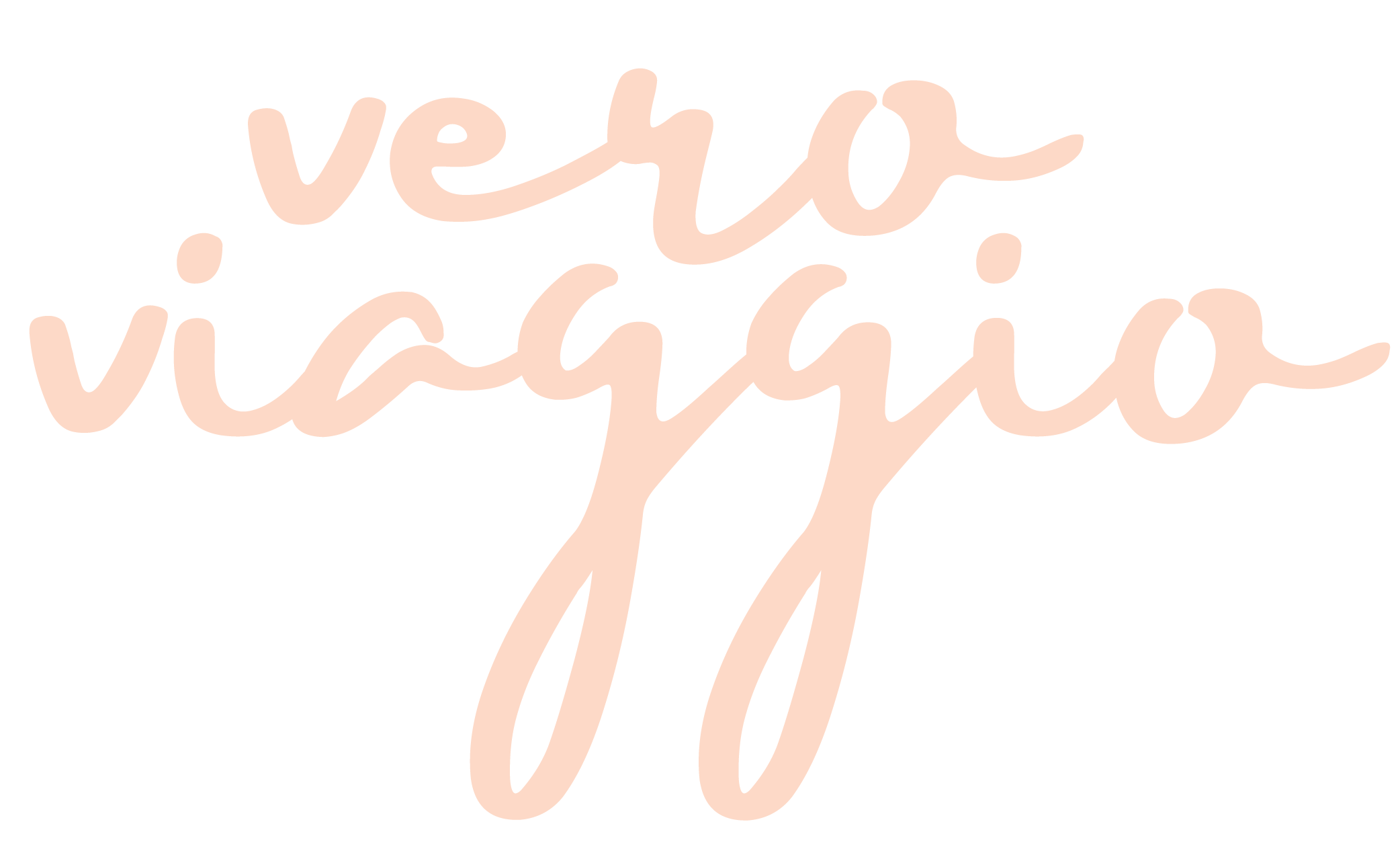



If you get a chance to try it – there is a couple in Seattle making wonderful Amaro, Sennzefinne. https://www.sennzafinne.com/
It’s really wonderful. They do ship- so it might be a possibility!
Susan,
Thanks for introducing me to this couple and their amari. I will definitely see about having one of my friends bring me some. I don’t think I can have it shipped here. Another reader has sent me some tiki cocktails which use various amari, and I am entranced.
Nancy